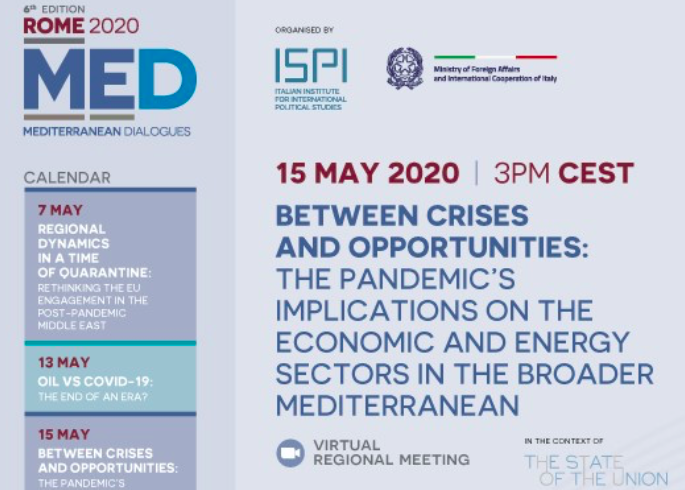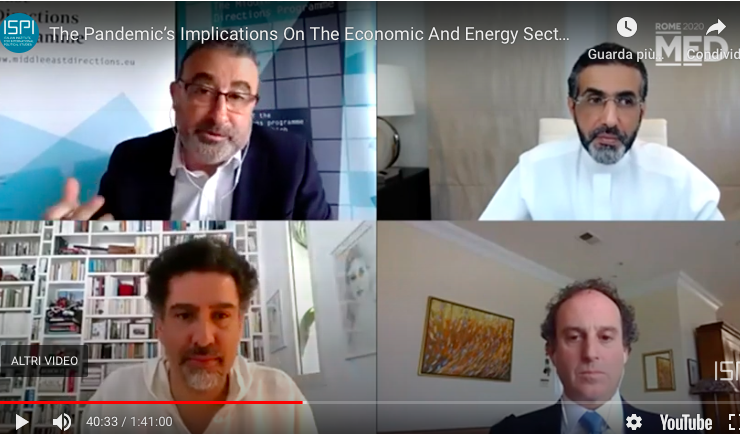
With industrial production and trade flows severely curbed and several economic sectors badly affected, the COVID-19 global pandemics has deeply impacted the world economy. The looming global depression is likely to further strain MENA structural economic weaknesses and heighten vulnerabilities in many countries, especially as it happens in parallel with a collapse in oil prices. These dynamics will also affect the socio-political equilibrium in the region, already strained by the growing socio-economic grievances and demand of empowerment, especially among the younger generations.
What are the economic and energy dimensions of the pandemics in the MENA region? How can MENA economies withstand the current crisis? What are the prospects for the youth and what are the implications for their aspirations in this context? How can MENA turn challenges into opportunities, kick-starting economic diversification, a more sustainable development model and a new social contract? How can the European Union support a positive response to the coronavirus crisis in its Southern Neighborhood?
Panel Discussion
Chair
Luigi Narbone, Director, Middle East Directions Programme, European University Institute, Italy
Fahad M. Alturki, Vice President of Research, KAPSARC, Saudi Arabia
Karim El Aynaoui, President, Policy Center for the New South, Morocco
Fernando Gentilini, Managing Director MENA, EEAS
Daniel Lederman, Chief Economist Office MENA, World Bank
Guntram B. Wolff, Director, Bruegel, Belgium
In partnership with the Italian Ministry for Foreign Affairs, Istituto per gli Studi di Politica Internazionale (ISPI), in the context of the European University Institute’s State of the Union.
The event is part of the Rome 2020 MEDiterranean Dialogues Agenda of Regional Meetings.
WATCH THE VIDEO




